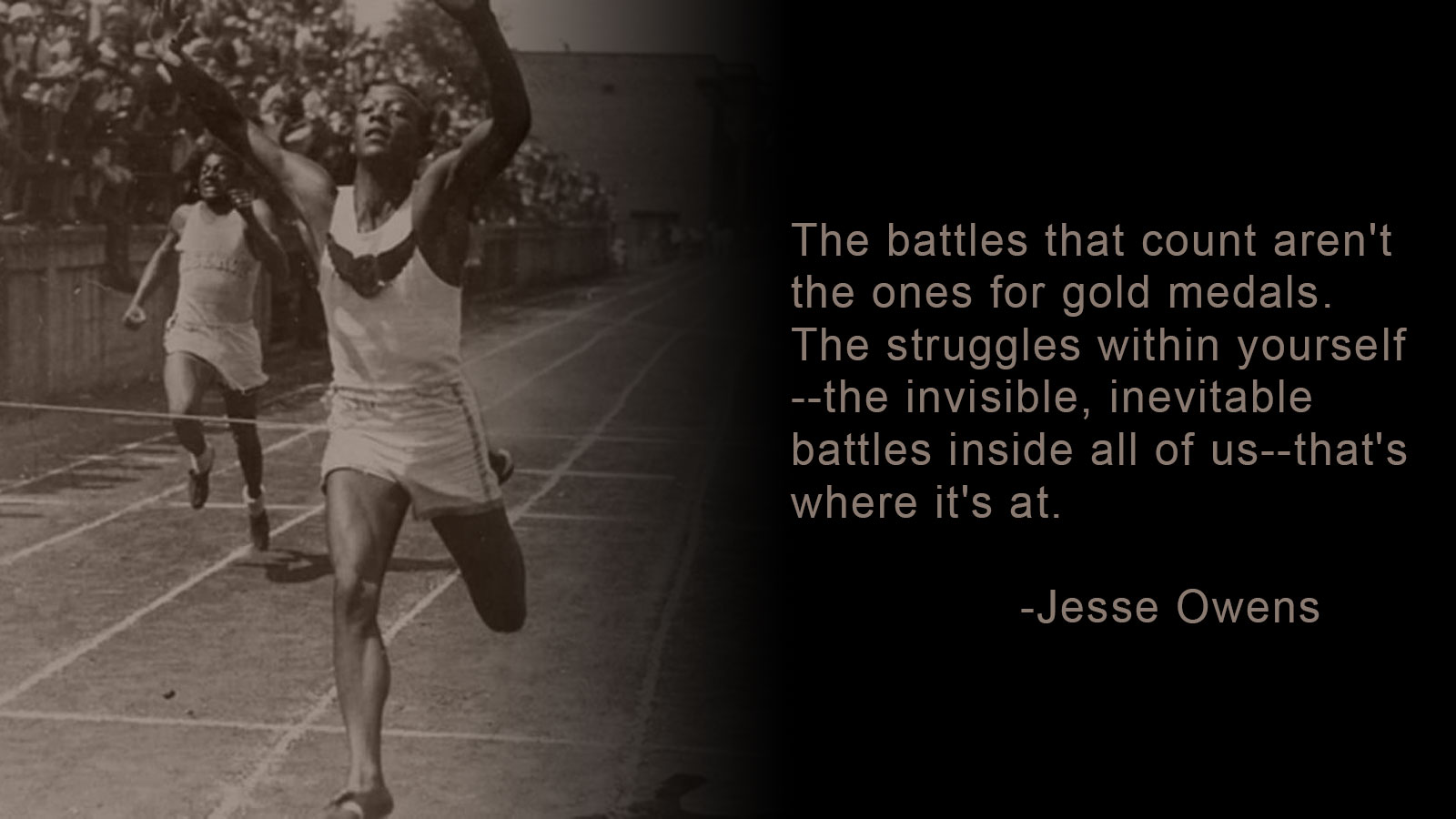Recognized in his lifetime as “perhaps the greatest and most famous athlete in track and field history”, Jesse Owens set three world records and tied another, all in less than an hour at the 1935 Big Ten track meet in Ann Arbor, Michigan — a feat that has never been equaled and has been called “the greatest 45 minutes ever in sport”.
The next year, in the 1936 Berlin Summer Olympics, Jesse Owens would push through an environment thick with racism (including Nazi Germany’s Arian claims) to win four gold medals. Owens’ record-breaking performance of four gold medals was not equaled until Carl Lewis won gold medals in the same events at the 1984 Summer Olympics in Los Angelas.
As a tribute to this phenomenal athlete, USA Track and Field’s highest accolade for the year’s best track and field athlete is called The Jesse Owens Award. President Jimmy Carter issued the following tribute to Owens after he died: “Perhaps no athlete better symbolized the human struggle against tyranny, poverty, and racial bigotry.”
It is nearly impossible to fully appreciate the struggles waged in the human spirit. Whether a commoner or public figure, each of us reconciles ourselves in some way to the world around us. Many people thought Jesse’s fame was accompanied by a picture-perfect life. They therefore thought it was degrading for an Olympic champion to be seen racing against horses in public appearances. But he would explain, “I had four gold medals, but you can’t eat four gold medals.”
Jesse’s life is a great tribute for building a strong foundation of principles that are independent of any public accolade.

